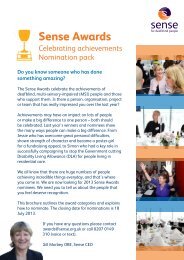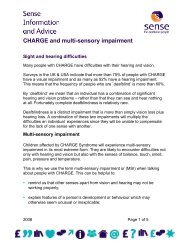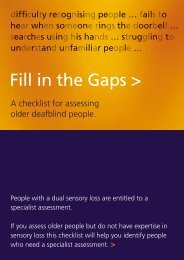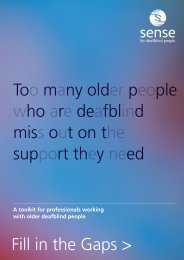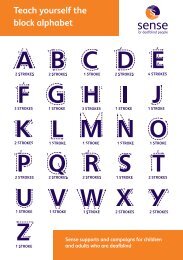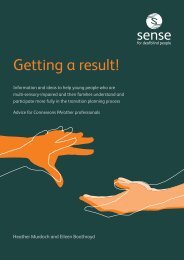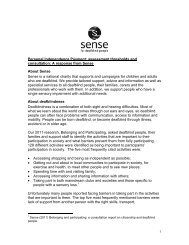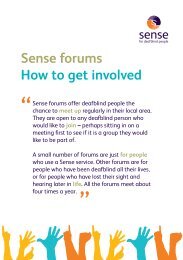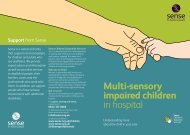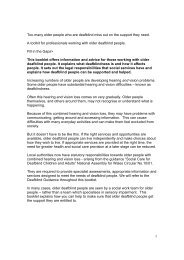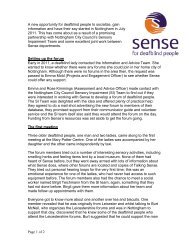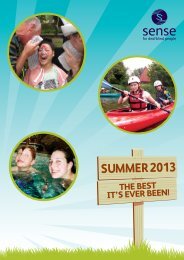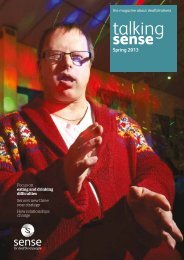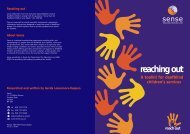MSI Unit Curriculum - Sense
MSI Unit Curriculum - Sense
MSI Unit Curriculum - Sense
You also want an ePaper? Increase the reach of your titles
YUMPU automatically turns print PDFs into web optimized ePapers that Google loves.
<strong>MSI</strong> <strong>Unit</strong> <strong>Curriculum</strong>: Phase 4Contextual understandingHarry’s understanding of context and his relation to others is supportedthroughout his time in school. Timetables and calendars support hisunderstanding of past and future. Photographs, symbols, pictures and artefactsare used to record and review events (Conceptual development). At Phase 4,discussion of pupils’ reactions becomes more detailed, investigating, for example,why they liked the bus journey more than the market stalls (Communication).Harry is encouraged to be aware of his feelings and those of others, both adultsand peers. The different settings in which pupils spend their lives are explicitlylinked: Harry contributes to his home-school diary, for example – staff sign tohim what they have written and then hand him the book to record his favouriteactivity through drawing (Understanding of time and place).Books, stories and drama sessions are also used to explore context andrelationships (Social relationships and emotional development). Harry’s dramagroup of four pupils, for example, go on an imaginary bus journey each week.The outer shell of the session – the bus trip – follows the same pattern eachtime: one pupil is the bus driver and the others buy tickets; the driver decidesthe turnings, bumps, tunnels and other features of the route. The pupils take asuitcase with them, which contains clues to their destination – sunglasses, shellsand a bucket and spade for the beach, perhaps. The destination is different eachweek. Often the pupils do not reach the destination at all, because the bus breaksdown, or someone traps their leg in the door, or a lost cat is found wandering…Harry enjoys drama and likes to take the part of the bus driver. He watcheswith interest when new roles are created, and may volunteer to act them on asecond or subsequent performance. In this way he experiences variety in a safeenvironment, where change is interesting and empowering, not intimidating. Healso has the chance to try different roles and ways of relating to others, again ina safe, non-threatening context (Responses to routines and changes).103



